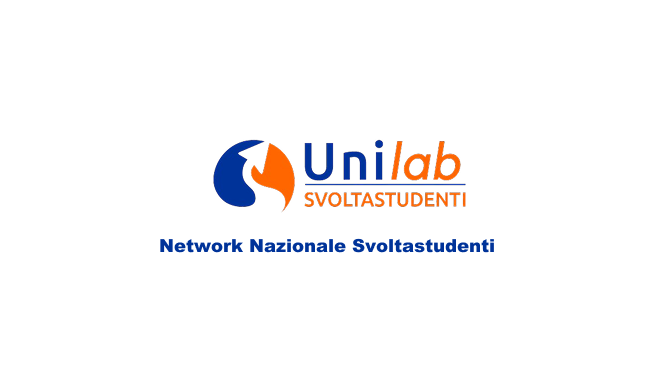What happened
Brief summary, without going into details.
**2008 **(2 years ago): for the first time, for the first time, the modalities and extent of the cuts to the Italian university system are defined, in particular concerning the Ordinary Financing Fund (FFO), or that sum of money that the state guarantees to the university, depending on the number of students, to cover personnel costs and part of the services. The Politecnico di Milano estimates, in the worst case scenario, a cut of 20 million euros.
At that juncture, in my opinion in an excellent way, the rector Giulio Ballio refuses to suffer such negative projections, yielding to a purely "accountant" response, addressed to the non-renewal of contracts to all staff hired for a fixed term and consequent reduction of services; opts, rather, for the choice, courageous and supported by the entire Academic Senate, not to give up services, but rather to strengthen some sectors of the university in order to be able to draw income from them and therefore face, even if in an uncertain and partial way, future cuts.
**2010 **(today): the cuts to the FFO have been confirmed to a large extent, although, for the Polytechnic the issue, on this front, has proved to be less catastrophic than expected.
In the two years that have passed, many issues concerning the university have been discussed: the mobilization of researchers is only the latest in a long series of confrontations / clashes and inconveniences, deriving from the Gelmini bill.
We would have to investigate the concept of Merit of the Minister and the outcome of the much-heralded projects to ensure due recognition to the "best" (Universities, teachers, students).
Today, however, there is a different and philosophically much more delicate question. Yes, because the Italian Government has decided to extend the cuts of the FFO, however scaled down to avoid the collapse of the entire university system, to the funds for the Right to Study (DSU).
What exactly is the DSU?
The DSU is a certain amount of funds that the state allocates, through the Regions, to students who, in possession of the established merit criteria, do not have sufficient family income, in themselves, to allow them to continue their studies (university in this case).
How much is the cut?
In the academic year 2009-2010 the scholarships available for the Polytechnic were about 2300. This year, and as a result of an agreement between our university and the Lombardy Region, we will try to guarantee 1700 scholarships (Speaking in Euro, about 3 million are missing).
There are 700 students who from one year to the next find themselves without a scholarship!
What I think
This, beyond any controversy, general or on the merits, that can be done on the Italian system, its possible flaws and its obvious limitations, is a shame!
It is the shame of a state that loses its characteristic of "civilization". There is no need for him to say words to reiterate, once again, the enormous loss for a country that is committed, like a crime, in cutting funds for education. Nor is it necessary to give the example of a privatized and elite education, such as the American one: a fundamental brick on which to build a pyramidal, classist and, I would say, profoundly undemocratic society.
We can aspire to something more: to quality public education!
A system that forms, at the base, responsible and aware citizens and men and women able to formulate critical judgments and, at the top, capable and morally sound professionals. And this is not achieved, of course, by cutting!
I end here this brief engraving to avoid boring you.
What they didn't tell you
Starting from last year, with the transition from the ISE model to the ISEEU model for the allocation of the income bracket (from 1 to 10 to understand us), the students of the Politecnico di Milano pay, every year in the form of university fees, about 6 million euros more than in the academic year 2008-2009.
This sum goes directly into the coffers of the Polytechnic which is free to use it as it sees fit.
It was a laborious work of the student representatives, to "regain" part of this money, so that it would come back in the form of services.
From this idea was born the Fund for Merit, which allocates about 2 million euros every year (out of 6, we remember), for the establishment of scholarships, prizes and facilities for the most deserving students.
The most innovative aspect, however, of this project, carried out by SvoltaStudenti with particular emphasis, is the opening of a branch component, dedicated to supporting projects of students who want to enrich their training, but who cannot do so because this would represent a too heavy economic commitment.
Just to give an example, suppose that a student wants to obtain a prestigious certificate, rather than follow a particularly expensive specific course: he presents his application at the counter and, if it is accepted (or actually recognized as a training activity), he receives the money necessary to be able to do what interests him.
About 400000 Euros per year are dedicated to the counter.
What we plan to do
I spoke of the Merit Fund because, clearly, in a situation like this, in which there is a risk that even the right to study will be denied, we representatives immediately wondered what the solutions could be: and the eye has obviously fallen on this resource, which we can manage directly.
However, I believe that the situation is more complex. I believe that, as student representatives, we must take more advantage of our university, which has already proved reasonable and responsible at other times.
I believe it is profoundly unfair to all students to sacrifice ourselves, once again, by giving up resources that are rightfully ours, to remedy a situation that represents the violation of a fundamental right; we are constantly asked to renounce, for the sake of the future, our demands: this was the case for the suspension of teaching and it is now, in a much more serious way, for the right to study.
But I wonder, what is this future, for which we should sacrifice? Whose future is this: is it really ours or who has interests very different from the good of the students? Has it not been forgotten that students are the beating heart of the university? Or maybe there are those who dream of a university without students? I await answers.
Meanwhile, in practice, SvoltaStudenti, together with the other representatives, has committed itself to bringing the issue of cuts to the DSU to the attention of the rector: for our part, as SvoltaStudenti, we will be willing to give up half of the funds for the counter, which we have not been able to start this semester, only if the Politecnico di Milano will cover all the remaining part of the scholarships!
In fact, we want to send a clear message: we will not give up a single comma of a project that has cost us effort and that represents one of the first steps towards a new idea of university, as well as a concrete tool for improving the lives of students, without the certainty that the problem of the Right to Study is completely solved!
What will happen
On December 1, 2010 an extraordinary Permanent Students Commissionwas convened, precisely to discuss the issue of Scholarships. We will keep you updated!




